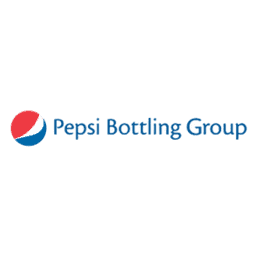The Evolution of Progress
The Pepsi Bottling Group (PBG) has consistently focused on process improvement.
“As an organization we spend a great deal of time asking ourselves how we can move forward — do our work smarter,” shares Brian Monroe, PBG’s Support Services Senior Group Manager.
By analyzing their payment processes and exploring available technology, successful business practices.
PBG realized they could probably shorten the time required to apply cash payments while actually reducing per-payment and labor costs. With $16 billion a year in remittances there was a lot of money and time to be saved.
Looking back over 15 years of process improvements and savings, PBG has clearly mapped their progress and a plan for the future.
“It’s good to know where you are because it’s all about continuing to do better,” shares Monroe.
What PBG has achieved is a testament to their organization’s focus on “taking the work out of the work” and provides insight into knowing where to begin.
Before 1995, PBG outsourced the bulk of their remittance processing. All data entry and reconciliation of remittance information to invoice data was done by the bank with a PBG staff of about 30 people dedicated to handling exceptions and errors. The process was time consuming, tedious and not always accurate. “We were paying a million dollars and still having to do all this work on our end because we just weren’t getting the quality we needed,” explained Monroe.
In 1995, with an initial investment of $75,000, PBG implemented an In-Source Data Entry with Online Data Entry (ODE) system and increased the departmental headcount to 60.
By doing this, “we reduced our costs and gained control of our own destiny,” reflects Monroe.
Bringing the process in-house resulted in fewer errors and less time lost on corrections.
After implementing their ODE system, PBG was able to calculate their cost per invoice and found out they were spending 20 cents per invoice. They realized they were handling about 11 million invoices with 60 people and it was taking them about six days to process them.
Never Being Complacent
In 1999, PBG added Optical Character Recognition (OCR) technology, deploying a combination of EDI, computer-based algorithms, automated data capture with OCR, and manual methods to process incoming remittance payments. At this point, 35% of their incoming invoices were managed through the automated system with “templated” OCR technology. PBG’s cost per invoice went from 20 cents to 15 and they reduced headcount by ten.
Next-Generation Solution
PBG recognized there was still room to improve, especially in regards to cash payments that were not applied after the EDI and algorithm process. The process was cumbersome and they were only able to reasonably apply OCR technology to their 400 largest customers.
In 2007, PBG worked with software solution provider KeyMark Inc. to explore their technology options. PBG selected AnyDoc® REMIT™ from AnyDoc Software as their automated Accounts Receivable (AR) document and data capture solution. AnyDoc® REMIT™ is designed to eliminate manual data entry associated with capturing data from incoming remittances and checks, including line item details. AnyDoc® REMIT™’s AnyApp™ technology eliminates the need for templates and automates the process of manually matching captured payment data to their appropriate invoices.
With the AnyDoc application PBG expanded their automated data capture solution to tens of thousands of customers and increased the speed and accuracy of their payments while lowering costs. Sixty-eight percent of their incoming invoices were now managed through the FUSION Innovation Award Winner 2009 automated system and their cost per invoice went from 15 cents down to 9. They were also able to reduce headcount by 17 and reallocate their resources.
Today
Each day, PBG’s CARMS ERP system receives a cash feed generated from lockbox payments processed through the bank. CARMS—using a combination of EDI remit data and customized in-house computer algorithms— automatically applies the cash payments closing out 29% of the open invoices. The remaining unapplied cash payments are fed into AnyDoc® REMIT™ where their associated images are applied from the bank. The AnyDoc® REMIT™ tool captures the necessary data without the use of templates no matter where it’s located on the page. PBG saves time and money by reducing the amount of time required to process incoming payments and by applying cash faster.
Currently, PBG processes 15 million invoices per year at a cost of six cents per invoice. Seventy five percent of their remittance payments are processed automatically and they have been able to reallocate their resources. They have reduced their six day processing cycle time down to a single day. Now, fewer people are devoted to remittance processing and according to Mike Bevilacqua, Director of AR for PBG, they’ve seen a 41% reduction in missed applications, a significant improvement in accuracy.
“Everything we do is getting faster,” shares George Wakefield, Business Analyst responsible for the AnyDoc Application at PBG. “From how quickly we process checks to how quickly we train our staff, we are continuously increasing our speed and efficiency.”
Other Process Improvements
From a management perspective, PBG has taken full advantage of the workflow reporting tools to seek out other possible areas of improvement. They are able to see in real- time when payments are processed, who is processing them and how long the process is taking.
“As you layer in technology and workflow as a manager you end up with a very powerful reporting tool,” Monroe explains. “Now we know who is doing what and we can raise the bar to bring people up a level. At the end of the day I can go back and look at who my strongest verifiers are.”
Looking at the Big Picture
“The world has changed over the 15 year period since we began automating our payments processes,” reflects Monroe. “In 1999, we looked at the AnyDoc technology because at the time the companies we looked up to were going that direction. The companies we set as our benchmark are now looking to us as their benchmark.”
It’s somewhat hard to compare apples to apples, but when PBG takes a big-picture look exclusively at the data capture portion, over the 15 years, from 1995 to 2010, they have reduced their Annual Total Cost of Cash Application by $700,000 with a $400,000 investment. Looking at it as a “single investment” and “single win”, this equates to a payback period of approximately 7 months.
About Pepsi Bottling Group
The Pepsi Bottling Group, located in Somers, NY, manufactures, sells, and distributes the Pepsi-Cola brand of beverages to approximately 55% of the United States market. With customers ranging from large retail chains with thousands of locations to smaller independent stores and restaurants, Pepsi Bottling Group makes 60,000 deliveries a day. Pepsi Bottling Group currently processes 15 million invoices annually – an average of more than 60,000 invoices a day.
